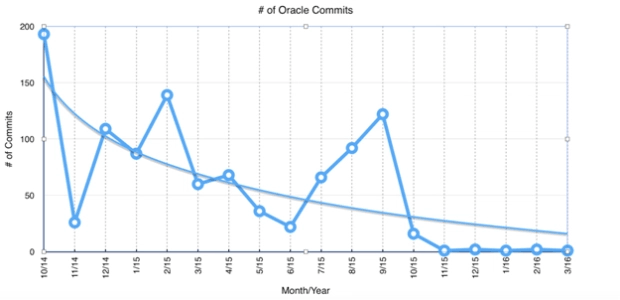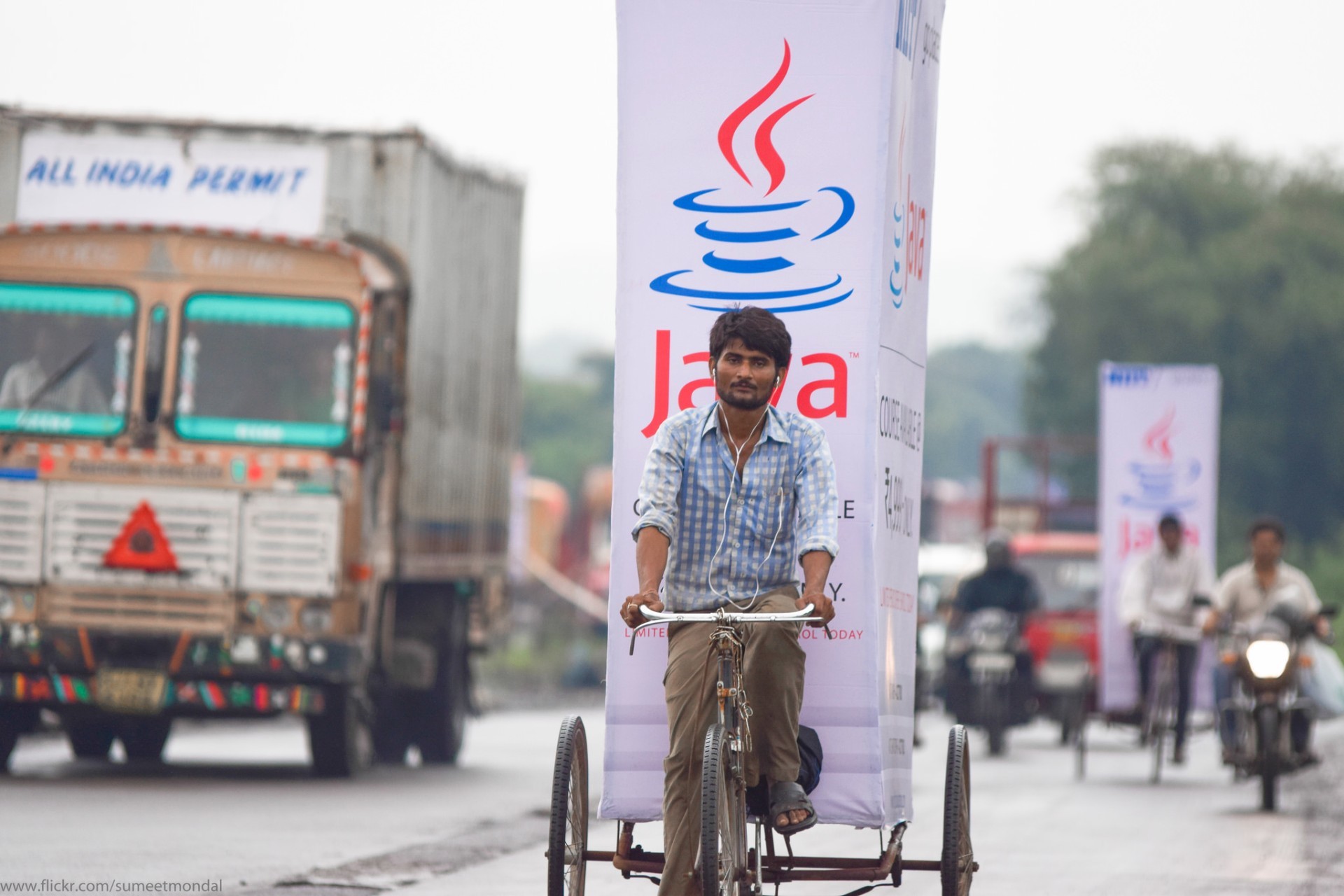Oracle has stopped developing Java EE?

Two years have passed since the release of Java 8, and many are eagerly awaiting the release of Java 9, which was postponed to March 2017 .
In the meantime, passions are running high in the Java development camp. The future of the Java Platform Server Platform, Enterprise Edition (Java EE) is extremely dim. A month ago, Oracle announced a significant delay in the release of Java EE 8, and this was the first call. As it became known to the publication Ars Technica, Oracle has completely stopped funding and developing Java EE. The publication writes that the traditional Oracle business model now directly threatens the very existence of the Java platform.
')
An open platform created by Sun, in which so much effort has been invested by the OpenSource community that runs on hundreds of thousands of servers and enterprise applications, including high-end projects, can be left without financial support.
If something does not make money, then there is no reason to develop it, according to Oracle. Normal business, nothing personal. And nothing new for anyone who knows the history of Oracle.
Everyone remembers the fate of other OpenSource projects that have come under the tutelage of Oracle. Here, for example, the operating system OpenSolaris. After purchasing Sun Microsystems, Oracle guaranteed the future development of the OpenSolaris project . Oracle member of the board of directors Dan Roberts (Dan Roberts) promised that Oracle will continue the development of OpenSolaris as an Open Source project, will help in every way to develop and support the community, even increase funding, continue to release releases of the OpenSolaris distribution. However, the version of OpenSolaris 2010.02 did not appear on time, and desperate developers from the Open Source community presented the Illumos project, fork of the OpenSolaris operating system.
The same fate befell the free office software package OpenOffice.org, which went to Oracle along with Sun. The new owner did not see the commercial potential in it, and in April 2011, Oracle stopped the development of OpenOffice.org and fired the remaining developers. Some of them went to the project LibreOffice (fork OO), which also most of the Linux distributions switched to.
It seems that the same story is repeated with Java EE. Without making loud statements, Oracle just quietly and imperceptibly minimizes the project, which then dies by itself, following the example of OpenSolaris and OpenOffice.org. Such methods are very familiar to everyone who knows Larry Ellison. The company under its management, which has risen to its feet thanks to the creation of the Oracle database at the request of the CIA, does not share its plans and intentions even with its closest partners.
As it became known, now development of Java EE in the Oracle company is completely stopped. Java EE programmers in the state of Oracle say they are being transferred to other projects. The community is heightened by discussions about what needs to be done fork. Oracle itself refuses to clearly clarify its position and make at least some official statement, despite the demands of the community. As usual.
Oracle's sinister silence has led some developers to express concern about the future not only of the Java EE enterprise platform, but of the entire Java platform as well. Individual activists formed the Java EE Guardian organization — protectors of Java EE — and published a petition on Change.org. On the page with the petition, they show an eloquent graph, which reflects the development of (issue resolutions) at Oracle for the Java EE project. This activity has dropped to zero.

The same with the schedule of mailings on the JavaServer Faces developer mailing list .

But the number of commits from Oracle to the JavaServer Faces project.

Java EE Guardian activists stress that the development of the Java EE platform is crucial to the normal existence of the entire Java ecosystem. They say that a huge number of applications are written in Java EE, but even those frameworks and applications that do not formally use Java EE are in fact heavily dependent on the Java EE APIs.
The importance of this platform shows polls developers .
It is difficult to find other multivendor open standards that are so widespread in real-world applications that are so widely supported and on which so many projects depend as on Java EE. According to Java EE Guardian, there are no real alternatives to Java EE as a platform for open standards.

Advertise Oracle Java courses from NIIT in India
On behalf of the Java EE Guardian movement, Reza Rahman (Reza Rahman), a former Java EE evangelist at Oracle, who retired from the company in March this year, speaks. He is well aware of the situation with the development in Oracle and knows what he is talking about. Even starting a job as an evangelist at Oracle a few years ago, Reza Rahman expressed great skepticism that this company was able to play the role of responsible manager for the development of the Java platform. He agreed to this work only because his longtime acquaintance in the Sun, Cameron Purdy (Cameron Purdy), worked at Oracle, but he had no illusions. Expectations are not deceived by a specialist. He says that the circumstances of Cameron Purdy’s forced departure greatly heightened his fears about the future not only of Java EE, but also of the Java platform in general. This skepticism is shared by many colleagues familiar with the situation in Oracle.
Reza Rahman is confident that Oracle will continue to neglect the development of Java EE, creating short-term and long-term risks for the entire community. This ultimately threatens every part of the Java ecosystem, as well as the global IT industry (at least in the short term).
It should be noted that Oracle still continues to invest in the development of Java SE, and the ninth version can be expected in accordance with the plan . At the same time, the corporation seeks to strengthen development control, pushing the curb on the OpenSource community. Oracle employees manage the development of virtually all of the proposed new specifications for the Java SE standard and at the same time constitute the lion’s share of OpenJDK employees - a project to create a fully compatible Java Development Kit entirely from free and open source. Such intrusive control also causes discomfort to the community, which in the past years has become accustomed to the open and equal participation of all parties.
Oracle's lack of an official position to develop Java EE harms the entire Java community and ecosystem, believes Martijn Verburg, representing the interests of the London Java Community, because companies are starting to promote their proprietary frameworks to support modern technologies such as microservices, and this can fragment the java community.
“We need an official Oracle application,” agrees Mike DeNicola, who represents Fujitsu on the Java Community Process (JCP) executive committee. The committee has already requested official clarification and hopes to receive a response. Oracle is still silent.
The community has wondered what Oracle has in mind, but is preparing for the worst.
Source: https://habr.com/ru/post/304812/
All Articles